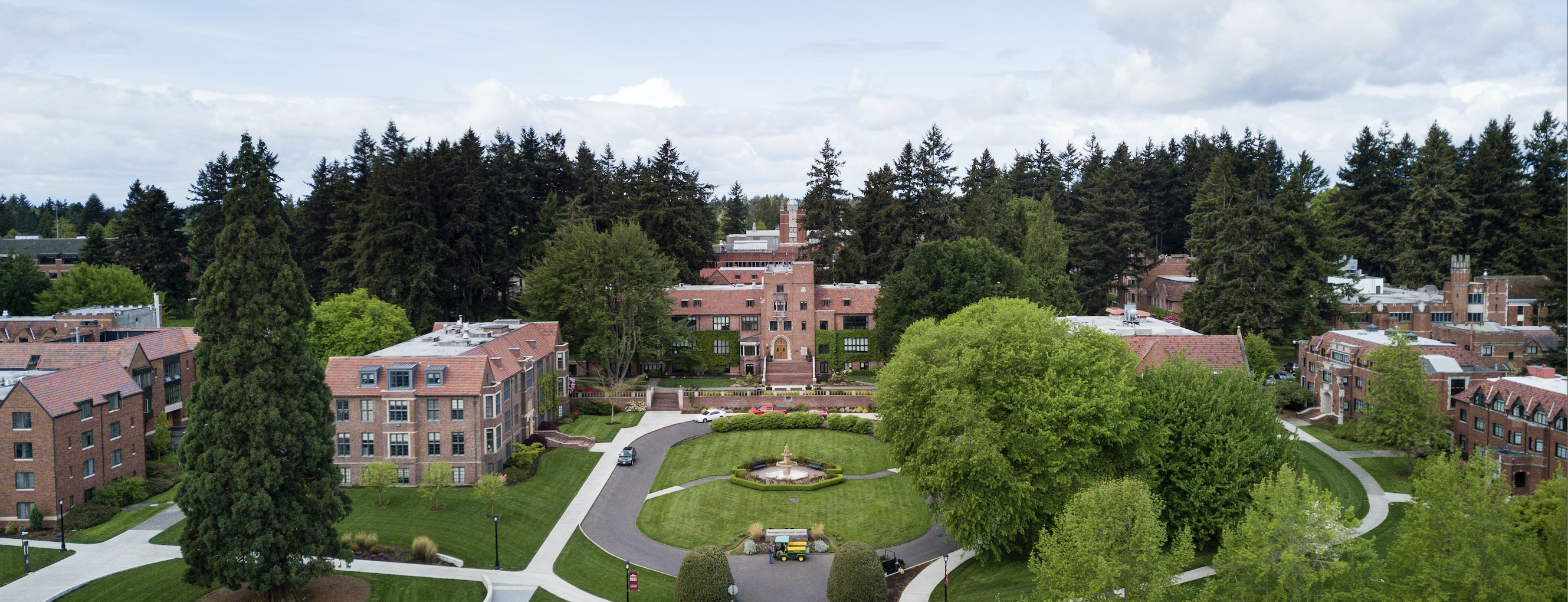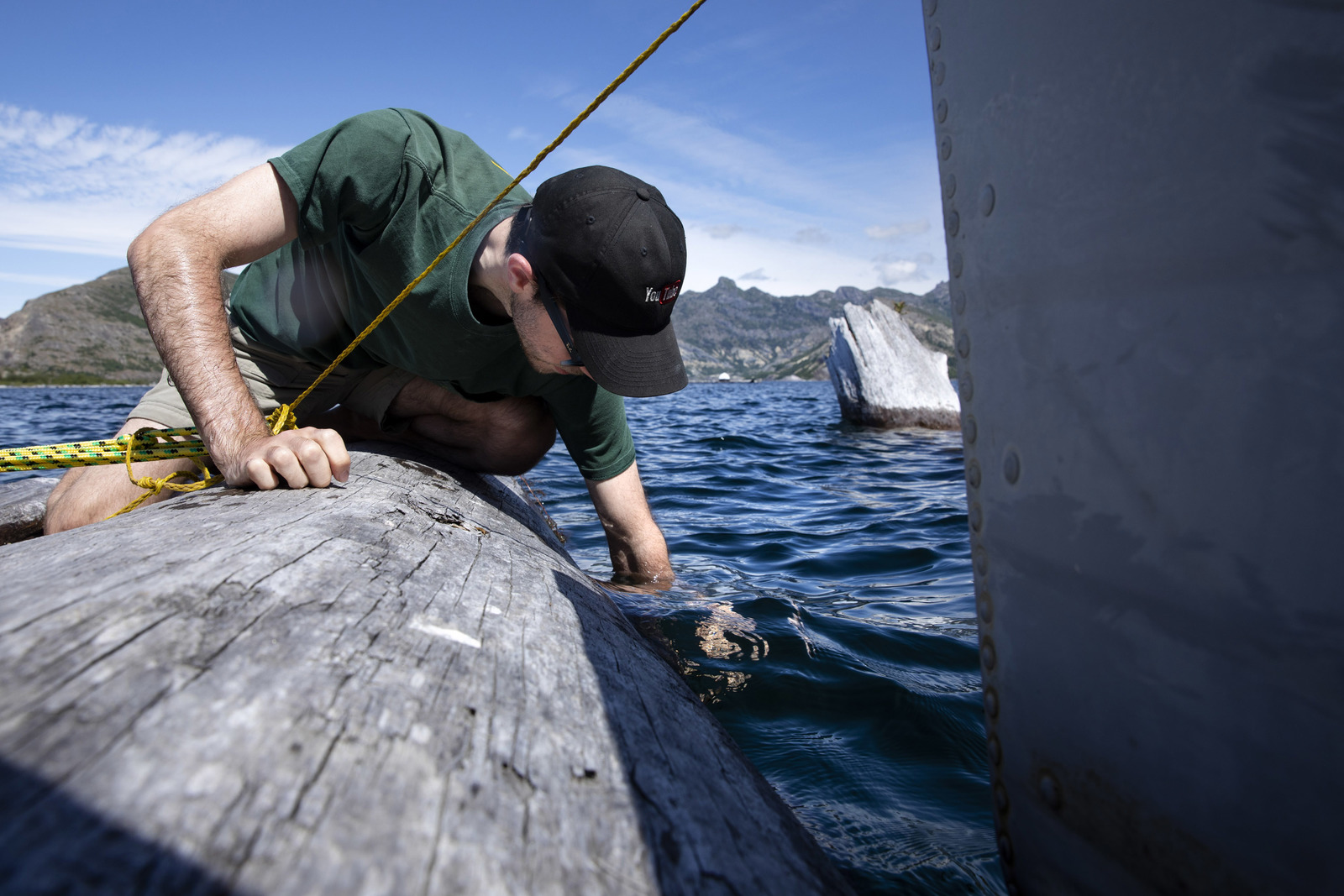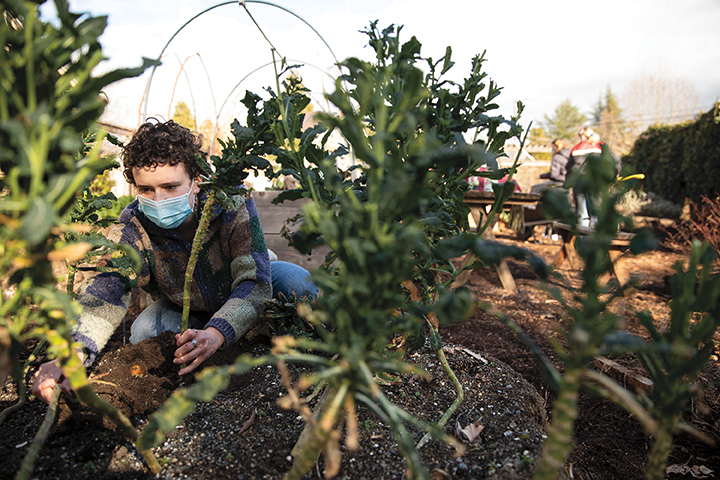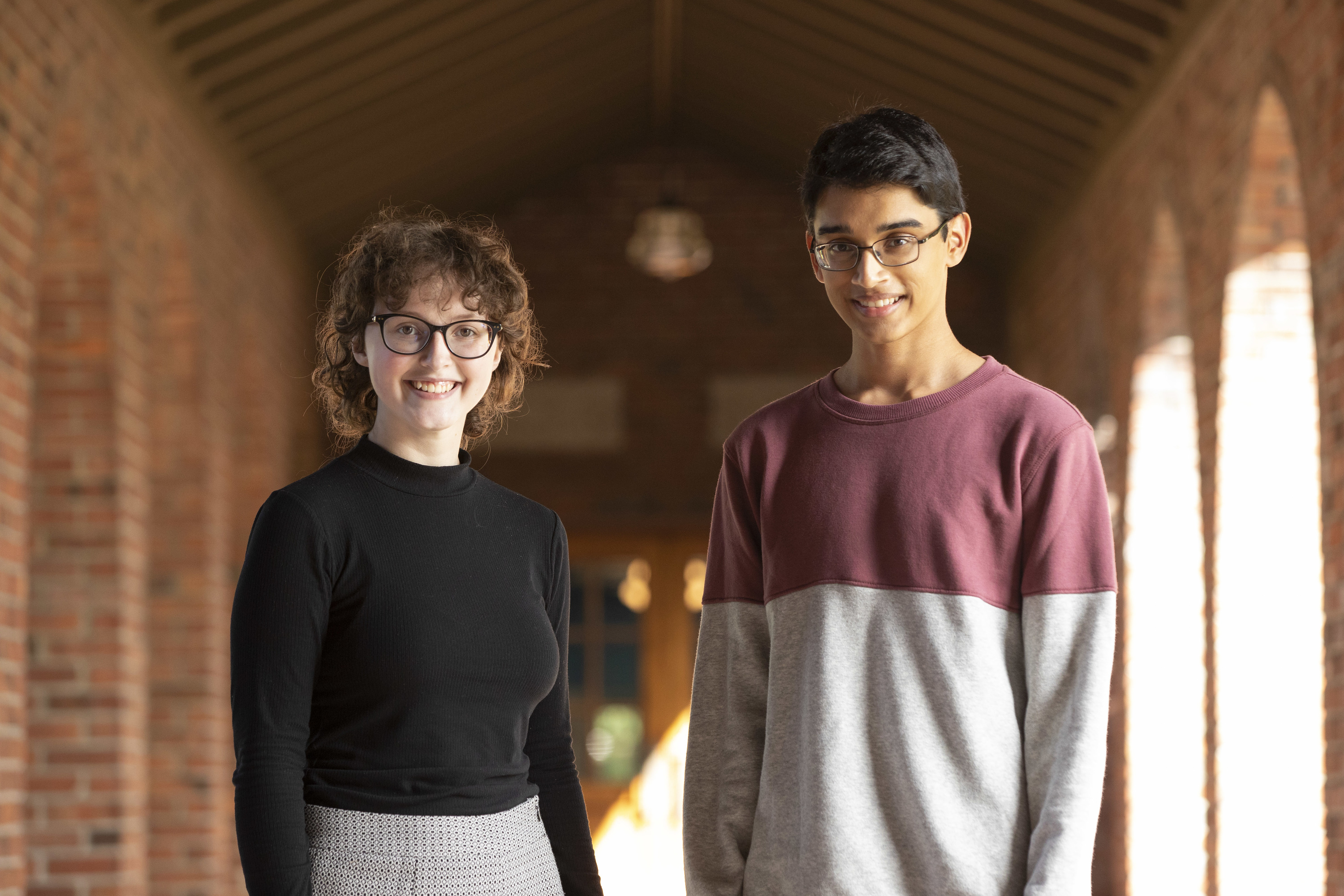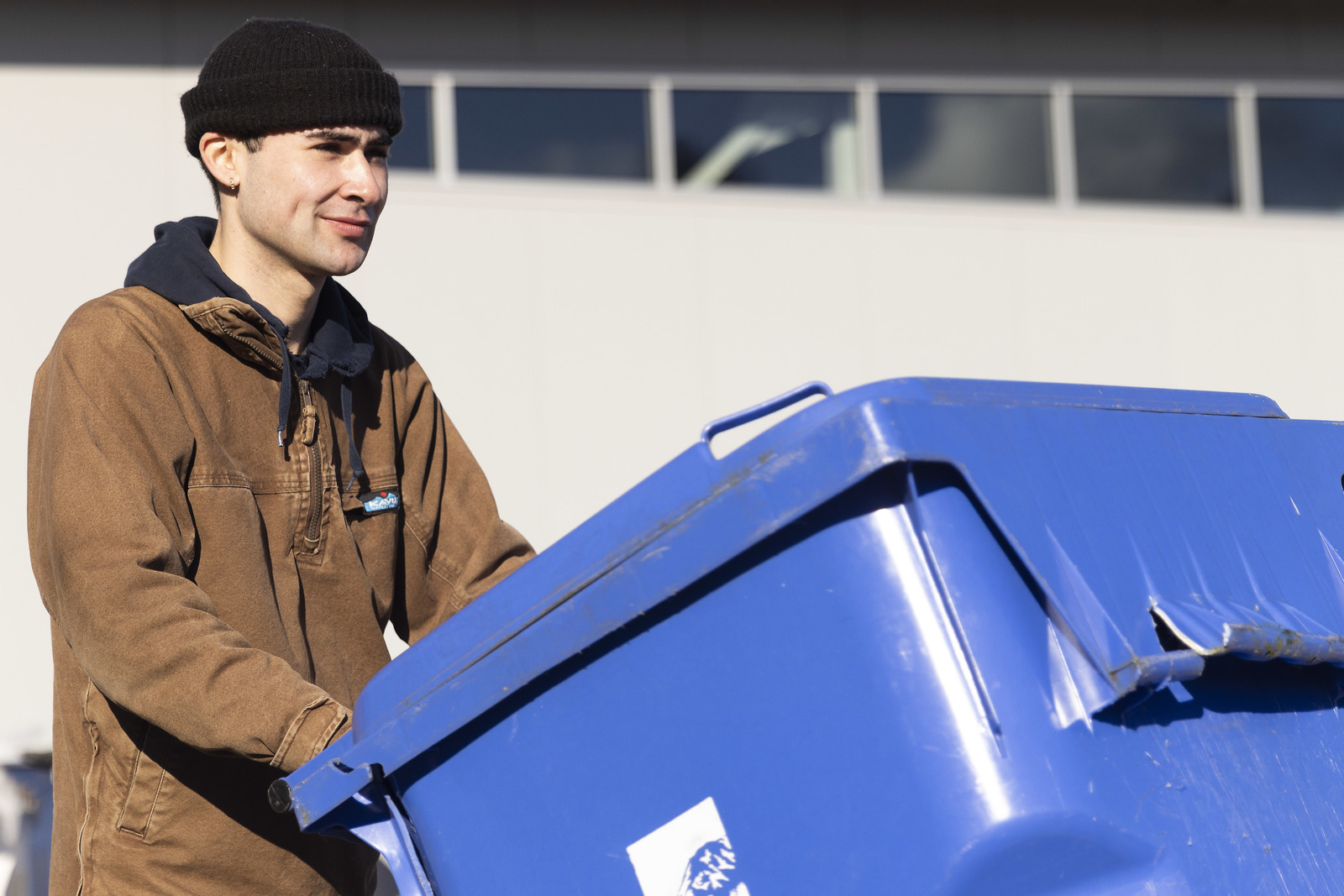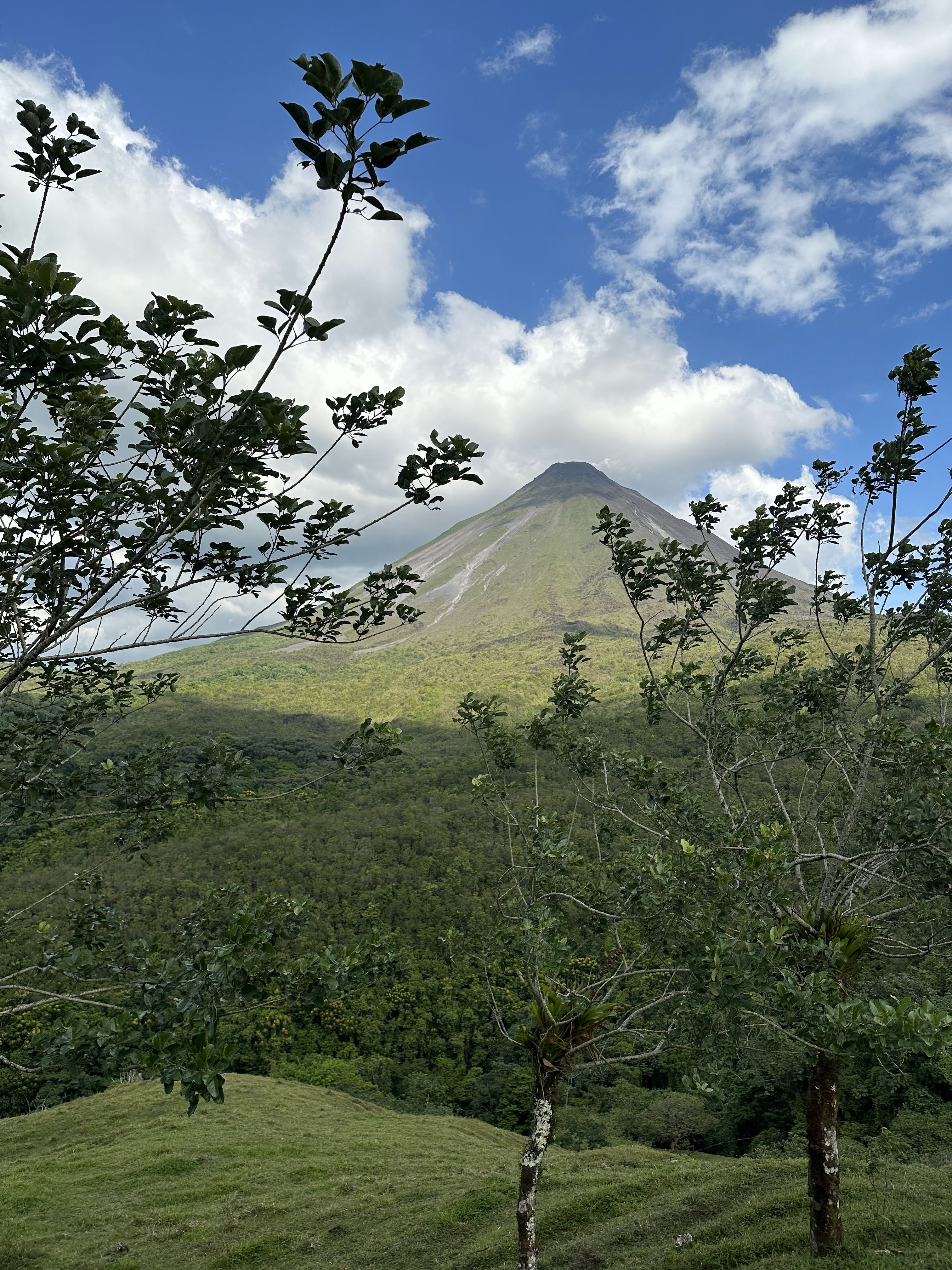Three University of Puget Sound students claimed second place in the Air & Waste Management Association’s (AWMA) Environmental Challenge international (ECi) competition, a highly competitive, engineering-dominated contest.
The students placed second narrowly missing out to a team from California Polytechnic State University engineering students. Other schools represented included Lousiana State University, University of Cincinnati, and Montana Tech. The Puget Sound team, dubbed, Logger Corp. Environmental Consulting, showcased the power of a liberal arts education by offering innovative solutions to a complex environmental problem.

Amelia Pooser ’26, a double major in politics and government, and French language; Catherine Schilli ’26, and Aubrey Kettley ’25, both economics and environmental policy majors, formed the Logger Corp. team. The three placed first in the Annual 2023 PNWS Conference, a regional section of AWMA in November, which resulted in their moving forward to compete in the international competition in June in Calgary, Alberta, Canada.
The ECi competition challenges teams from various universities to develop solutions for real-world environmental issues. This year's focus was on addressing waste management and air quality challenges caused by a cattle feedlot in Alberta, Canada. Faced with a problem typically tackled by engineers and scientists, the Puget Sound trio took a unique approach.
"We knew we were up against teams with strong science and engineering backgrounds," Kettley said. "But we also realized that our liberal arts education gave us a different perspective. We focused on community engagement, economic impact, and policy implications."
The team's strategy involved a deep dive into the social and economic fabric of the community affected by the feedlot. They proposed solutions that not only addressed environmental concerns but also considered the well-being of residents. Their emphasis on community engagement and sustainable practices set them apart from the competition.
The competition required them to submit a research poster and give a 10- to 15-minute presentation to judges. Pooser said they received compliments on their poster and speech.
"Our ability to communicate complex ideas clearly and persuasively was crucial," said Pooser. "We spent countless hours refining our presentation, making sure we could explain our solutions in a way that resonated with both technical experts and the general public."

The team shared that they were proud of their placement in the competition and all of their accomplishments. Their performance on the international stage has brought recognition to the University of Puget Sound and highlighted the value of a liberal arts education.
"This experience has been transformative," Schilli said. "It has shown me the power of interdisciplinary collaboration and the importance of tackling complex problems from multiple perspectives."
The competition is integrated into the university's curriculum and counts as a .25 credit for students. This unique approach provides credit towards graduation for their real-world learning experience while fostering a deeper understanding of environmental challenges.
“This is just one of the courses that count towards the Experiential Learning graduation requirement,” said Daniel Burgard, professor of chemistry and biochemistry. “Our students interact directly with environmental professionals as part of the conference and the ECi competition. Students network with these professionals as well as defend their environmental solution to them.”
Burgard credits the success of Puget Sound teams to the wide range of experiences and education they bring to the competition.

“Part of solving a sticky, true-to-life environmental challenge is the ability to engage with all of the concerned parties in the community, not just the scientific solution to environmental clean up,” Burgard said. “The environmental professionals who judge the competition know that there is more to a real-life environmental problem than the science of the clean up. These additional considerations are sometimes lost with teams made up of all engineers or only scientifically trained undergraduate and graduate students from other schools.”
Burgard says Puget Sound is often the only liberal arts college represented at this competition.
Typically, Puget Sound students have some affiliation with the Environmental Studies & Sciences department. In the past, Puget Sound teams have been composed of students studying everything from Studio Art to Biochemistry.
“We were able to compete on this level, because we know how to research our way to a solution, we understand how to formulate essays, research papers, and we know how to write,” Pooser said. “But also, we know how to speak and communicate effectively. That’s an important part of any career and I believe that well-roundedness is attributed to our liberal arts education.”


